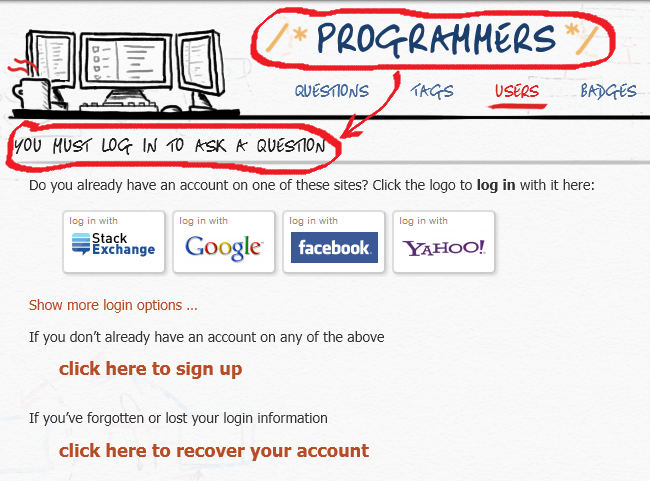...we’re determined to keep question quality high, even at the cost of refusing a little sand. It’s true that you can’t have Q&A without questions, but having the wrong sorts of questions is far more dangerous. The fastest way to kill any Q&A site is to flood it with low-quality questions. I think Mark Trapp summed it up best in this meta answer:
To put it another way, when I go to a Stack Exchange home page, I see a list of questions. If most of those are terrible questions with little to no indication that I’d be wasting my time by reading them, the value proposition of visiting and participating is diminished: I have better things to do.
Compare that to answers on a specific question: I’ve made a conscious choice to look into what I think is an interesting question. I already made the decision that the question is worth my time. If I find the answers to be useless, I have a few different options, as an interested party, to register my displeasure, including writing my own answer. Being able to write your own answer is key: if your answer is good enough, it’ll rise above the junk answers and everyone will be better off for it.
There is no such action for question lists. I can’t say “these questions suck, show me this question I just thought up instead”: that’d be silly. So, it’s imperative the question list have a high signal-to-noise ratio, and removing the penalty for those users who do take the time to read a question and later find it to be useless so they can down-vote is conducive to that.
Fundamentally, answers can be filtered in ways that questions cannot. While there is a tension between having “enough” questions and a bunch of amazing, highly skilled answerers twiddling their thumbs waiting around for something to do, in the long run we’d much rather err on the side of having interesting and on-topic questions for these folks to sink their teeth into.
We feel that the world is awash in questions, but not answers. Answers are the real unit of work in any Q&A system. Therefore, the only logical thing to do is to maximize the happiness and enjoyment of answerers. If this means aggressively downvoting or closing unworthy and uninteresting questions, so be it. Without a community of people willing to answer questions, it really doesn’t matter if there are questions at all, does it?

